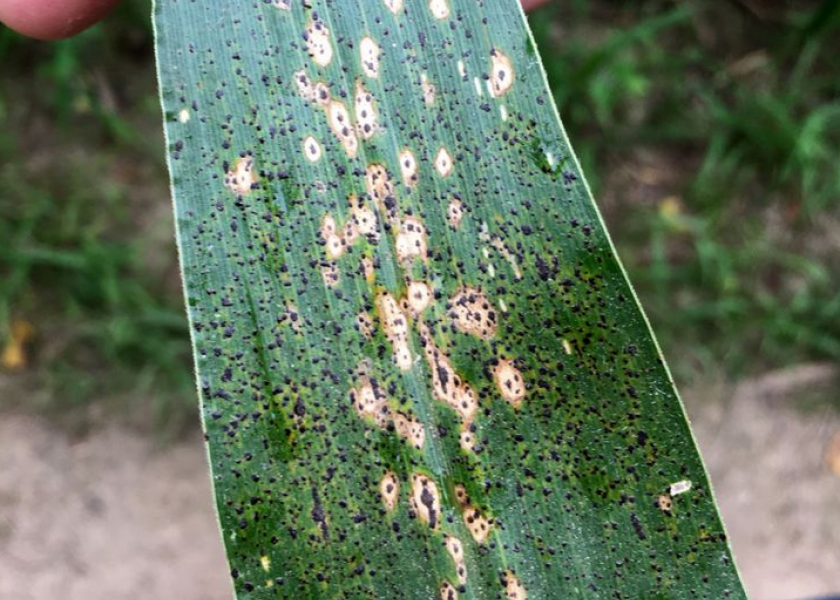New Research Finds Hope for Battling Tar Spot

First spotted in Illinois and Indiana in 2015, tar spot has been effecting corn in several states across the eastern U.S. While mild cases can be combatted with fungicides or certain hybrid varieties, more serious outbreaks can result in heavy losses.
But growers fighting an ongoing battle with the disease may see a light at the end of the tunnel with new research from the Agricultural Research Service (ARS).
The research identified several different species of fungi and bacteria that can stop tar spot from developing.
How it Works
According to Purdue University, tar spot is a fungus, known as Phyllachora maydis, that presents itself on corn plants as small, raised black spots called stromata.
The fungi and bacteria found by ARS scientists grow and reproduce on or inside the tar spot stromata, parasitizing the tar spot fungus and causing failure to germinate.
Researchers used DNA to identify the species and found they are known biological control agents of diseases affecting other crops.
ARS trials found:
- Exposure to spores of Gliocladium catenulatum (a commercially available biocontrol fungus) prevented 88% of the tar spot fungus’ stromata from germinating.
- An Alternaria fungus isolated from a tar spot stroma prevented about 45% of stromata from germinating.
“Several research studies have demonstrated that some strains of Alternaria alternataare effective biocontrol organisms can reduce the damage caused by plant pathogens,” said Eric Johnson, ARS research molecular biologist, in an agency release. “It may be useful in killing overwintering tar spot stromata given that the tested strain grew well at cold temperatures.”
Moving Forward
ARS reports its studies are still in the early stages and additional research will be necessary.
They are also exploring additional approaches to controlling tar spot, such as:
- Examining the basic biology and genetic underpinnings of the tar spot fungus.
- Developing molecular markers to speed the search for new sources of tar spot resistance in corn.
- Exploring strategies to make better use of fungicides registered for use against tar spot in corn.
Ugh. Tar Spot Moves In After Drought Leaves
High Humidity a Contributing Factor in Tar Spot Outbreaks
Split, Pinch And Push Stalks If Tar Spot Strikes Now
Risk–Reward: Tar Spot Tolerant Versus Susceptible Hybrids







